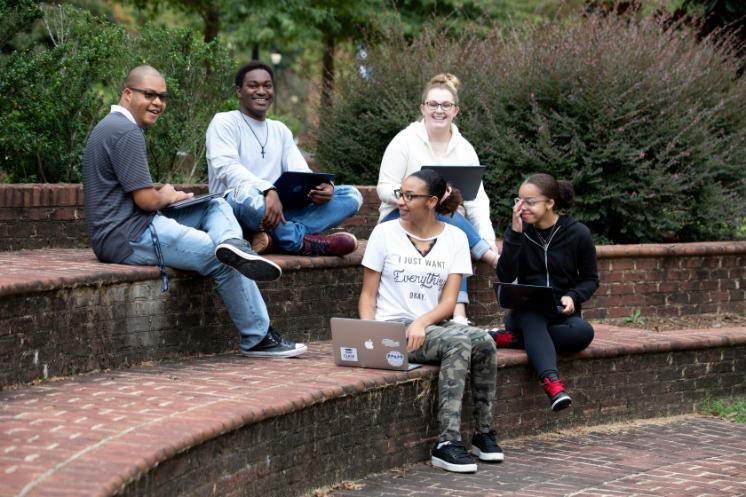
Students

You'll work with academic counselors, mentors, and advocates to assist with adjustment to college, career guidance and development through career-targeted programming that include:
- Academic Advising Session Support
- Academic Study Hall
- Academic Coaching Sessions
- Probation/Suspension Support
- Academic Case Management
- Psycho-educational Groups (Men's/Women's Empowerment)
- LBAA Mentorship
Weekly Academic Coaching Seminars
CLASP meets weekly on Thursday from 3:30-5 p.m., in Hull 129B to strategically develop students’ academic skills in the areas of:
- Advanced College Study Skills and Strategies
- Goal Setting for Success
- Memory Techniques
- Tackling Procrastination
- Academic Planning
- Stress Management
- Test Anxiety
- Test Preparation
- Effective Textbook Reading
- Time Management
- Communicating with the College Environment
- Self-Advocacy Skills
- Cultural Engagement
- Locating, Accessing, and Utilizing Campus Resources
Individual Academic Counseling
Every Week CLASP participants meet individually with a student intern enrolled in the masters of Counselor Education program (College Counseling and Student Affairs track) and Longwood University faculty and staff, for academic and college adjustment counseling to provide
- Emotional support
- Guidance
- Therapeutic tools to help them cope with personal or academic issues that may impede their progress toward graduation
- Develop strategies to remove such barriers
Group/Individual Mentoring
The CLASP offers students an opportunity to engage in meaningful individual and group mentoring with caring faculty and staff. Such mentoring takes into account each student’s strengths and areas of need of development.
Mentoring is facilitated from a culturally-sensitive and culturally relevant point of view.
Mentoring sessions take place both formally and informally throughout the academic year and summer months.
Peer Study Sessions
CLASP meets weekly from 3:30-5 p.m. on Tuesday, in Hull 129B for peer study sessions, with the goal of assisting students with studying, learning, and researching for academic success.
The CLASP staff are immersed in each study session, with the goal of moderating the sessions for students through the implementation of academic coaching skills learned in the weekly academic coaching seminars.
Tips for a Successful Semester
Start with a reasonable workload. If you’re sweating how you’re going to do it all before the semester has begun, perhaps you’ve bitten off a bit more than you can chew. Or perhaps you’re underestimating yourself. Decide which and, if it’s that the workload is implausible, pare it back.
Read your class syllabus. Read them and prepare what you can in advance. If it isn’t posted contact the professor. The goal is to read as much as you can during the break. If the syllabus is not complete the professor will usually share a few readings he or she knows will be part of the course. If there is a concept in the syllabus with which you’re not familiar, look it up. If there are dates of exams or major papers due, block out the time around them in your calendar for studying or researching and writing.
Use a time management system. The single greatest impediment to success in college/work is poor time management. There are free time management apps like Pomodoro.
Ask for help! Your professors want to see you succeed and they have office hours set aside each week to help you understand the concepts covered in class. Check your class syllabus to find out when they have office hours, and feel free to reach out to them then or via email.
Establish a workspace and keep it organized.
Connect with your LBAA mentor. Here’s a fact that few students realize: professionals love to mentor younger people and help them succeed in their careers. Reconnect with professionals in your area of study and ask for their advice.
Plan time to eat right, exercise, and sleep. Your mind and body are connected, so make sure your body is getting the nutrition and physical activity it needs. Eliminate processed foods, particularly sugar, and clear your mind with a good workout. Your body needs 7-9 hours of restful sleep to re-nourish your brain cells and help your psyche work through emotional issues. For help contact Well Being, CAPS or the University Health Center.
Take advantage of academic resources. As an LU student, you have a wealth of academic resources available to help you in your academic journey.
Make a connection in each class. Get to know someone in each class. Don’t understand a concept or are unsure about something related to class? Ask your friend. Some students thrive in small study groups, and if you have to miss class, your classmate may be willing to share notes.
